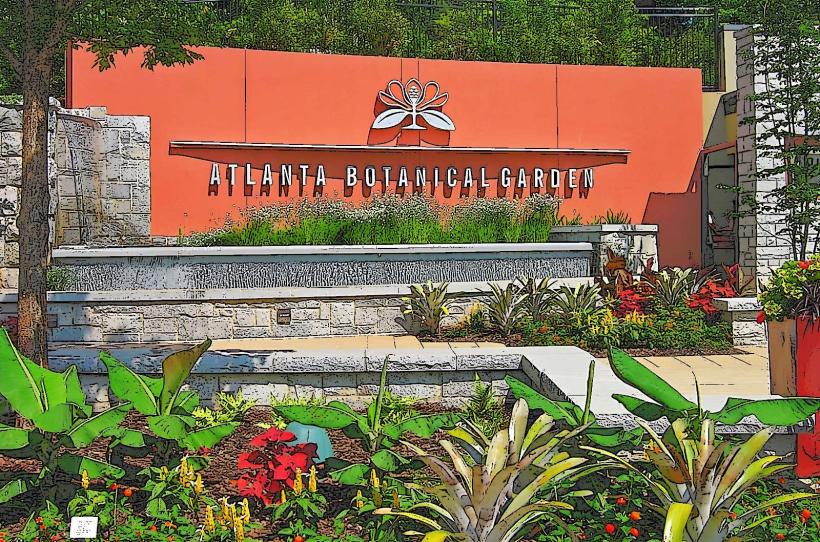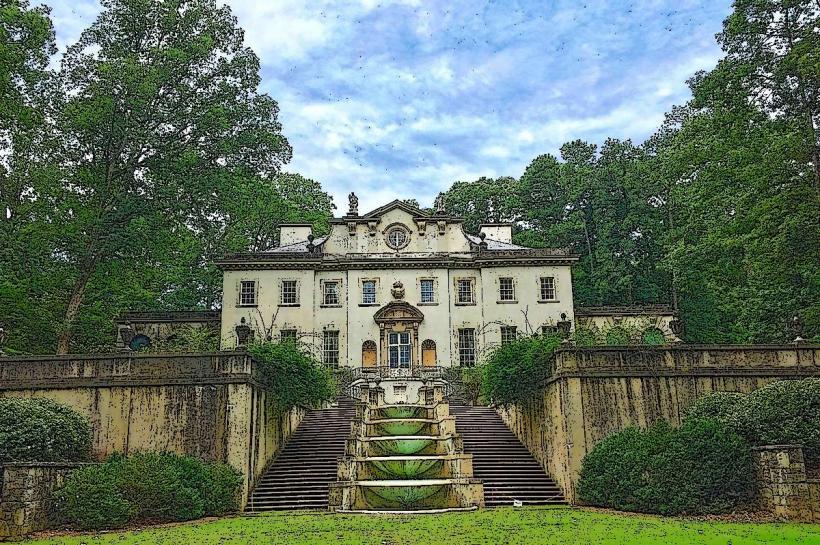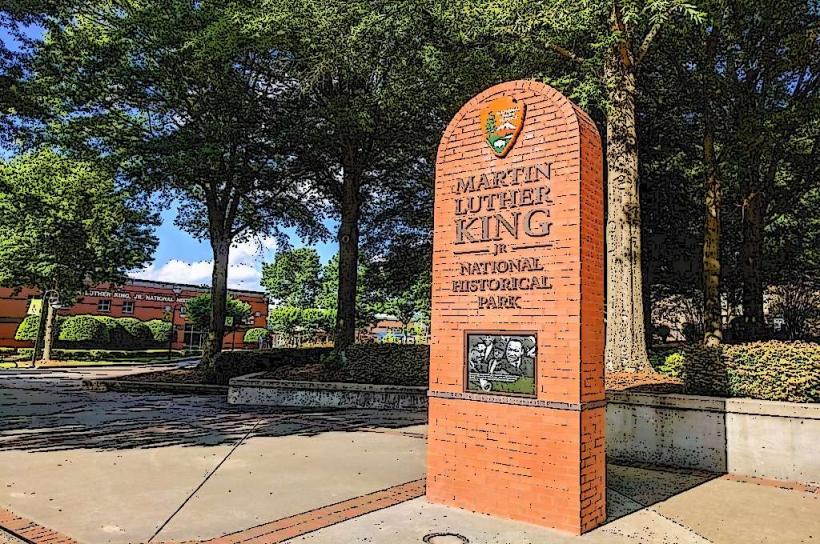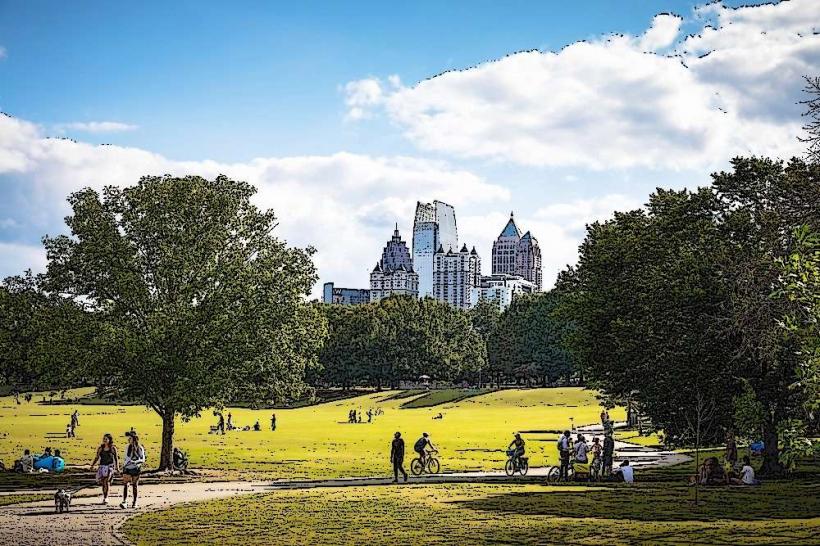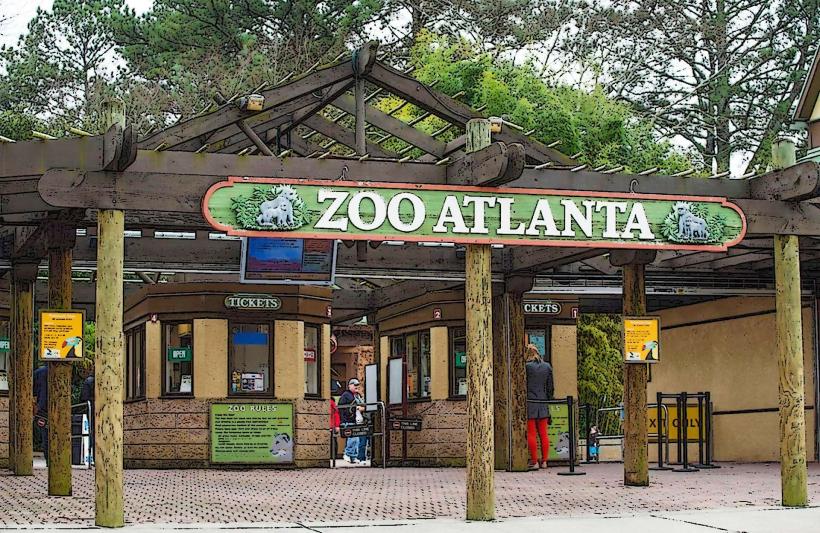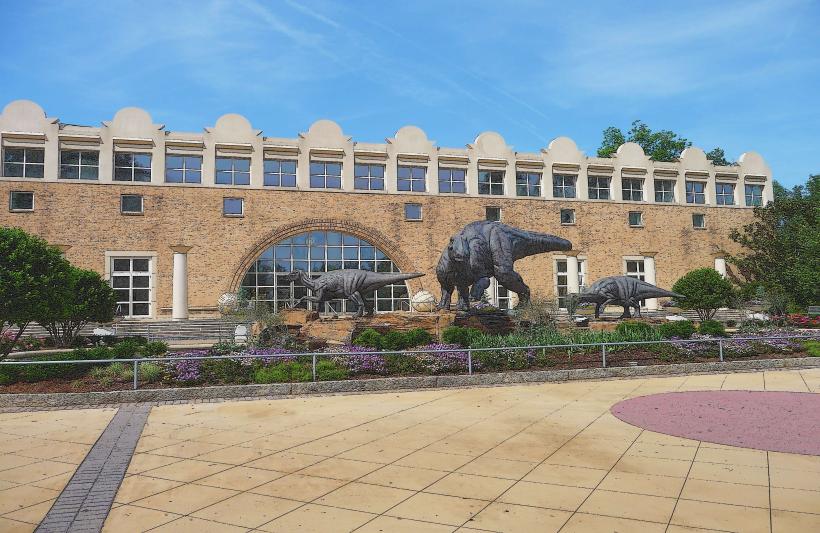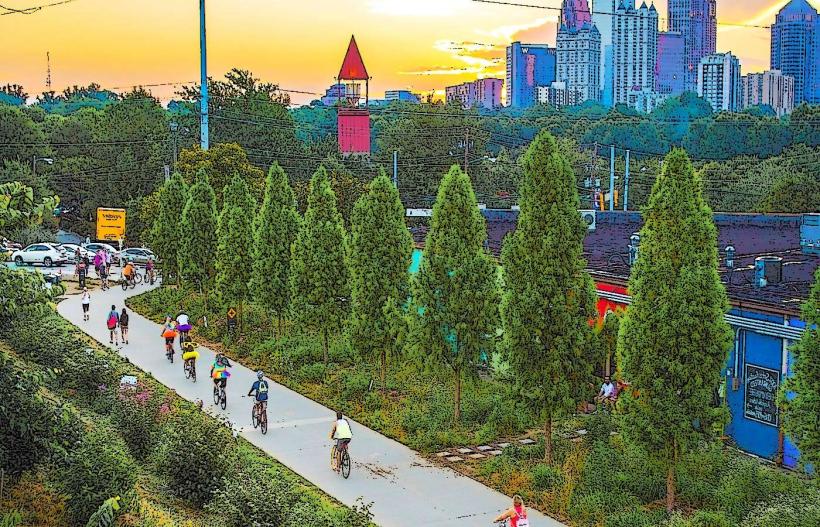Information
Landmark: Chattahoochee National ForestCity: Atlanta
Country: USA Georgia
Continent: North America
Chattahoochee National Forest, Atlanta, USA Georgia, North America
The Chattahoochee National Forest is a protected area located in northern Georgia, USA. It encompasses a significant portion of the Appalachian Mountains within the state.
Visual Characteristics
The forest is characterized by deciduous and coniferous trees, with elevations ranging from approximately 1,000 to over 4,700 feet. The terrain features steep ridges, narrow valleys, and numerous streams and rivers, including the Chattahoochee River. Rock outcrops and exposed granite formations are present at higher elevations. Vegetation density varies seasonally, with dense foliage in summer and exposed tree structures in winter.
Location & Access Logistics
The forest is situated in the mountainous region of North Georgia, approximately 1.5 to 2 hours north of Atlanta via Interstate 85 North and then various state routes (e.g., GA-400 North, US-19 North). Access points are numerous, with multiple designated entrances and trailheads along state highways such as US-19, US-129, US-76, and GA-60. Parking is available at designated trailheads and recreation areas; availability can be limited during peak seasons. Public transport is not available within the forest itself; personal vehicles are required for access.
Historical & Ecological Origin
The Chattahoochee National Forest was established in 1936 through the consolidation of several smaller national forests and acquired lands. Its purpose was to protect watersheds, conserve timber resources, and provide recreational opportunities. Ecologically, it is part of the Southern Appalachian Mountains ecoregion, known for its high biodiversity and ancient geological history, with rocks dating back over a billion years.
Key Highlights & Activities
Activities include hiking on over 850 miles of trails, such as sections of the Appalachian Trail and the Benton MacKaye Trail. Fishing is permitted in designated streams and lakes. Camping is available at developed campgrounds and dispersed sites. Boating and paddling are possible on Lake Blue Ridge and the Toccoa River. Wildlife viewing and photography are also common pursuits.
Infrastructure & Amenities
Developed recreation areas offer restrooms, picnic tables, and designated campsites. Some areas have potable water sources. Cell phone signal is intermittent and generally unavailable in remote sections of the forest. Food vendors are typically located in gateway towns outside the forest boundaries, not within the forest itself.
Best Time to Visit
For hiking and general recreation, late spring (April-May) and early autumn (September-October) offer moderate temperatures and reduced insect activity. Fall foliage viewing is optimal in mid-to-late October. Summer months (June-August) are warmer and can be humid, with higher chances of afternoon thunderstorms. Winter offers opportunities for solitude but can involve icy conditions at higher elevations.
Facts & Legends
The forest contains Brasstown Bald, the highest natural point in Georgia, standing at 4,784 feet. A local legend speaks of the "White Path," an ancient trail said to be used by spirits, though its exact location remains unverified.
Nearby Landmarks
- Brasstown Bald Visitor Center (0.2km North)
- Vogel State Park (8km Southwest)
- Blue Ridge Lake (15km West)
- Amicalola Falls State Park (30km South)
- Cohutta Wilderness (40km Northwest)

